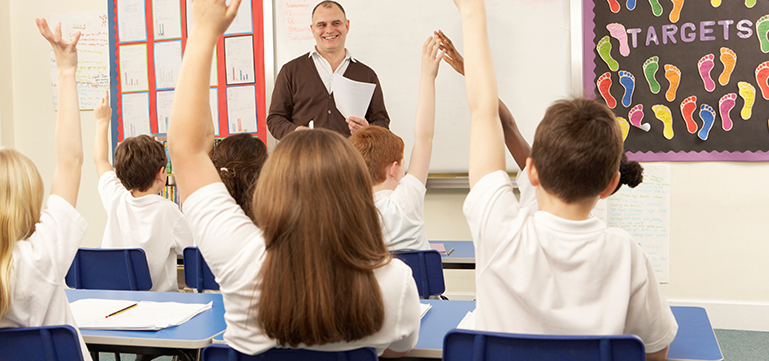Effective partnerships that engage children and enrich the curriculum

Quick links:
Context and background to sector-leading practice
The school is home to an established community as well as many new arrivals. The school felt that it needed to play a more proactive role in building relationships within the community and wanted to improve family engagement.
The city centre location also affords the school many rich opportunities for developing effective partnerships with higher education, business, and community organisations. The school wanted to develop effective and sustainable partnerships to engage children and enrich the curriculum.
Description of nature of strategy or activity
In 2014, Tredegarville CW Primary School designated a senior leader to be responsible for family and community engagement and launched the ‘Building Our Partnerships’ project.
The ‘Building Our Partnerships’ project has two aims. Firstly, to encourage parents to engage in the school; and secondly, to involve a wide range of partners from higher education, business and community organisations to enrich the curriculum and raise pupils’ and parents’ aspirations. The ‘Building Our Partnerships’ project links closely with the school improvement plan. Leaders develop an annual action plan so that ‘Building Our Partnerships’ activities closely mirror the priorities in the wider school improvement plan. For example, when the school improvement plan focuses on raising standards of oracy, ‘Building Our Partnerships’ activities also focus on the developing oracy.
The school database tracks family engagement carefully to monitor the involvement of groups of learners and to ensure careful targeting of the hardest to reach families. High proportions of families eligible for free school meals and families with English as an additional language engage well with ‘Building Our Partnerships’. Developing a Parent Council has improved parent voice and played an important role in getting families to engage better with school improvement targets. For example, the parent council devised a leaflet to help all parents support their children’s oracy skills. A school governor supports the leadership of the ‘Building Our Partnerships’ project effectively.
Family engagement activities in the ‘Building Our Partnerships’ project include:
-
weekly workshops where parents work alongside their children on activities, which focus on the school improvement targets
-
courses to support parenting
-
courses to support parental learning (DIY; making jewellery)
-
developing the ‘Learning Lounge’, parents’ information technology courses and family computer club
Community engagement
The school has developed partnerships with a very wide range of organisations. There is a weekly ‘Do Something New’ session, during which children select a ‘club’ to join to learn a new skill. Examples of clubs on offer include knitting, French, coding, golf, samba, drumming, creative writing and many more. Community partners run clubs and activities link well to the school improvement plan. For example, a local business has run a creative writing and animation club supporting school improvement work on writing.
As part of ‘Do Something New’, partners also run after school activities and lead rich learning tasks. Many partners also visit the school as part of the ‘Inspiring the Futures’ week to talk about their lives and work.
What impact has the work had on provision and learners’ standards?
The ‘Building Our Partnerships’ project has contributed to:
-
high levels of attendance (the school has been in the top 25% of similar schools for the past three years)
-
high levels of pupil engagement in learning through ‘Do Something New’
-
strong rates of progress; for example, when the project focused on developing oracy, the percentage of pupils achieving level 4 or above in key stage 2 increased by 14% and the gap between pupils eligible for free school meals and the others disappeared; pupils who regularly attend the family workshop progress faster than those who do not attend
-
a notable increase in the percentage of parents who feel that the school consults well with them
-
a notable increase in parents’ confidence in supporting their children’s learning
-
many parents developing their own confidence and skills
-
strong rates of progress for pupils with English as an additional language and high levels of engagement from these families
How have you shared your good practice?
The school has shared its ‘Building Our Partnerships’ project with local schools through regular meetings of cluster family engagement officers. The school has contributed to events and conferences organised by ‘Investors in Families’. As part of the Primary Futures Wales pilot, the school supports the development of partnership working across Wales.